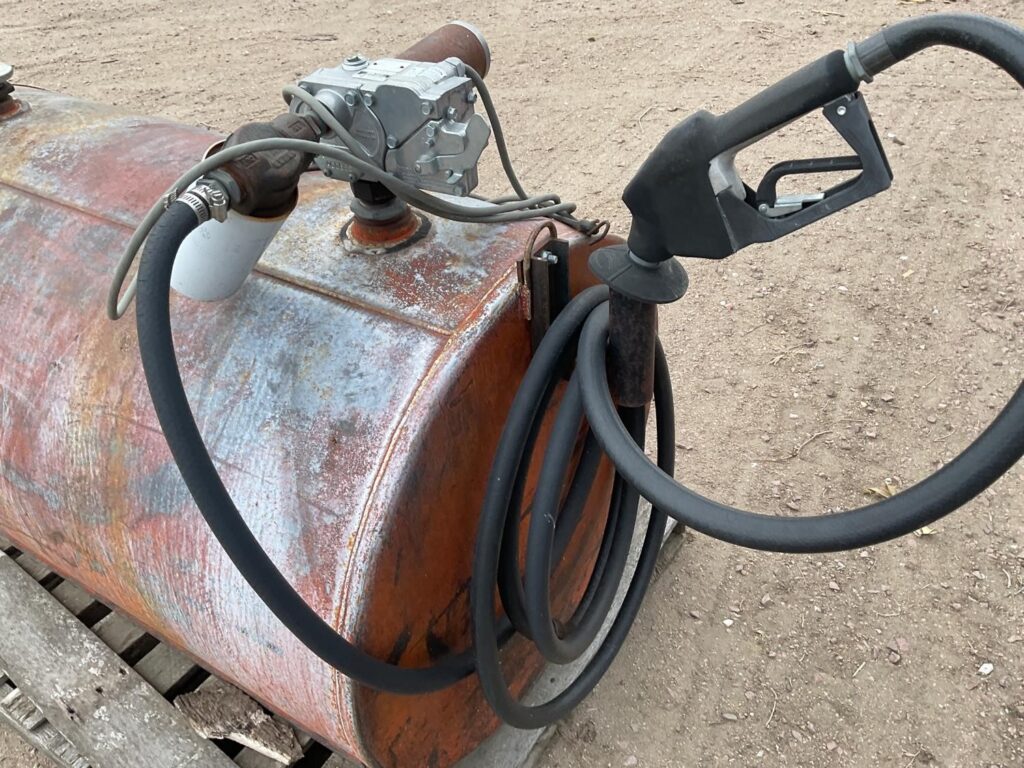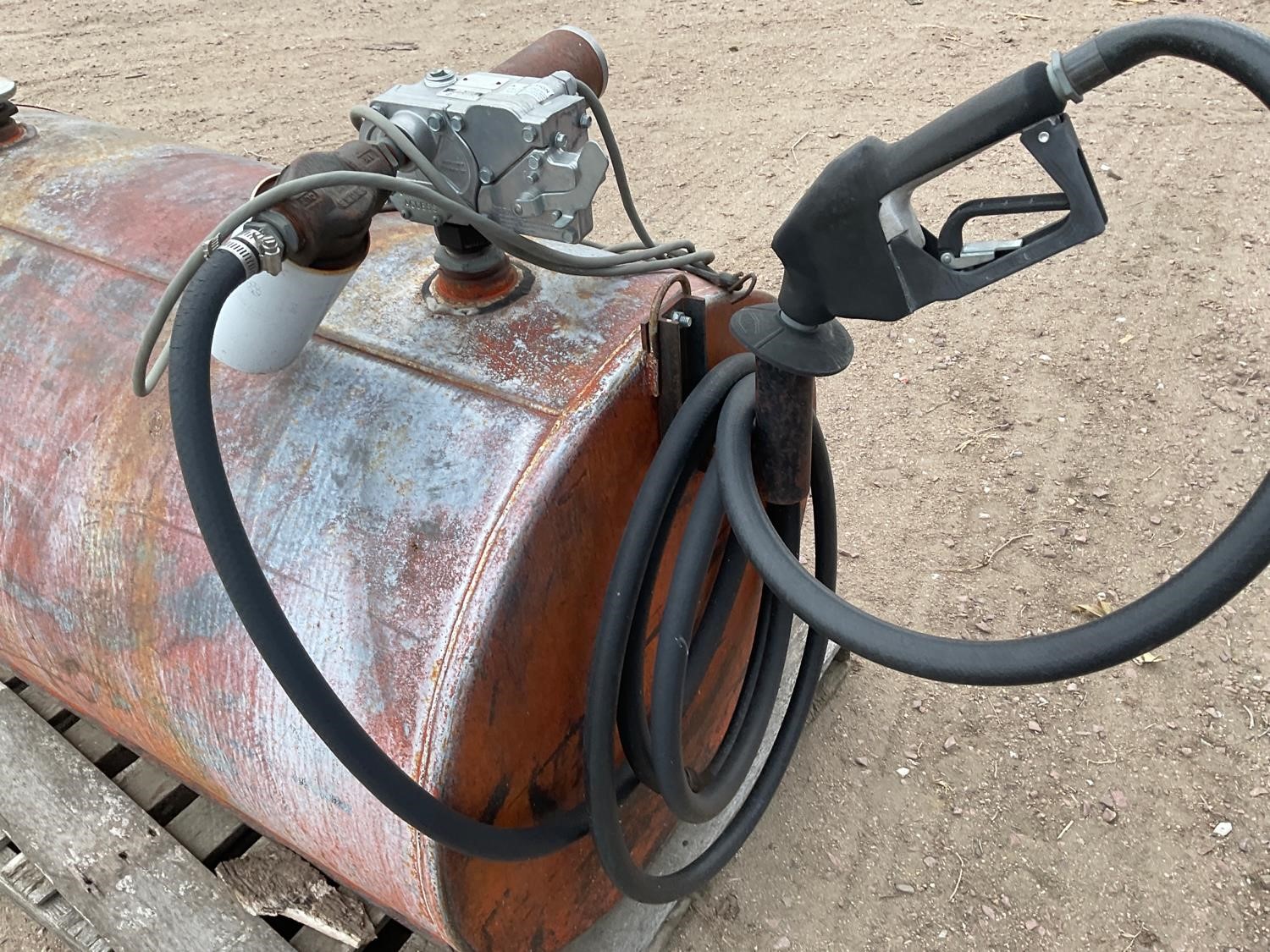
The Ultimate Guide to 200 Gallon Diesel Tanks: Size, Uses, and Regulations
For businesses and individuals requiring a reliable and manageable fuel storage solution, the 200 gallon diesel tank emerges as a practical choice. This size offers a sweet spot between portability and capacity, making it suitable for a variety of applications. Understanding the specifications, uses, and regulations surrounding these tanks is crucial for ensuring safe and compliant operation. This comprehensive guide delves into everything you need to know about 200 gallon diesel tanks.
What is a 200 Gallon Diesel Tank?
A 200 gallon diesel tank is a container specifically designed to store diesel fuel. These tanks are typically constructed from durable materials such as steel or polyethylene to withstand the corrosive nature of diesel and prevent leaks. They come in various shapes and configurations, including horizontal, vertical, and portable models, catering to different space constraints and operational needs.
Key Features and Specifications
- Capacity: The primary feature is, of course, its 200-gallon (approximately 757 liters) capacity.
- Material: Common materials include steel (often with a protective coating) and polyethylene. Steel tanks offer robust durability, while polyethylene tanks are lighter and resistant to rust.
- Shape and Configuration: Available in horizontal, vertical, and cube shapes to fit different spaces. Portable tanks often come with wheels for easy movement.
- Safety Features: Essential features include vents to prevent pressure buildup, fill caps to ensure secure filling, and leak detection systems in some models.
- Regulations Compliance: Must comply with local, state, and federal regulations regarding diesel storage, including spill prevention and containment measures.
Common Uses for 200 Gallon Diesel Tanks
The versatility of a 200 gallon diesel tank makes it suitable for a wide range of applications:
Agriculture
Farmers rely on diesel to power tractors, combines, and other essential equipment. A 200 gallon diesel tank provides a convenient on-site fuel source, reducing downtime and improving operational efficiency. Storing diesel on-site means less trips to the fuel station, saving time and money during critical planting and harvesting seasons.
Construction
Construction sites often require heavy machinery that runs on diesel. Having a 200 gallon diesel tank readily available ensures a continuous fuel supply for excavators, bulldozers, and generators, keeping projects on schedule. Portable 200 gallon diesel tanks are particularly useful for construction sites that move frequently.
Emergency Power
Businesses and homeowners often use diesel generators as backup power sources during outages. A 200 gallon diesel tank can provide a substantial reserve of fuel, ensuring that critical systems remain operational during emergencies. This is especially important for hospitals, data centers, and other facilities where uninterrupted power is essential. [See also: Diesel Generator Maintenance Tips]
Transportation
Smaller trucking companies or individuals with diesel-powered vehicles may use a 200 gallon diesel tank for refueling purposes. This can be particularly useful for long-haul drivers or those operating in remote areas where fuel stations are scarce.
Marine Applications
Diesel-powered boats and yachts often utilize 200 gallon diesel tanks to store fuel for extended voyages. These tanks are designed to withstand the harsh marine environment and provide a reliable fuel source for navigation and onboard systems.
Benefits of Using a 200 Gallon Diesel Tank
- Cost Savings: Buying diesel in bulk and storing it in a 200 gallon diesel tank can often result in significant cost savings compared to purchasing fuel in smaller quantities.
- Convenience: Having a readily available fuel supply eliminates the need for frequent trips to fuel stations, saving time and improving operational efficiency.
- Increased Uptime: On-site fuel storage minimizes downtime for equipment and machinery, ensuring continuous operation during critical periods.
- Fuel Security: A 200 gallon diesel tank allows you to secure your fuel supply, protecting against price fluctuations and potential shortages.
- Portability: Many 200 gallon diesel tanks are designed to be portable, making them easy to move between job sites or locations.
Regulations and Compliance
Storing diesel fuel is subject to various regulations designed to protect the environment and ensure public safety. It’s crucial to understand and comply with these regulations when using a 200 gallon diesel tank.
Federal Regulations
The Environmental Protection Agency (EPA) sets federal regulations for fuel storage, including Spill Prevention, Control, and Countermeasure (SPCC) rules. These rules require facilities that store more than 1,320 gallons of oil (including diesel) to develop and implement an SPCC plan to prevent oil spills from reaching navigable waters or adjoining shorelines. While a single 200 gallon diesel tank may not trigger this requirement on its own, facilities with multiple tanks or larger storage volumes will need to comply. [See also: Understanding SPCC Regulations]
State and Local Regulations
In addition to federal regulations, state and local governments may have their own specific requirements for diesel fuel storage. These regulations can vary widely depending on the location and may include requirements for tank construction, installation, leak detection, and spill containment. It’s essential to check with your local environmental agencies and fire departments to determine the applicable regulations in your area.
Best Practices for Compliance
- Proper Installation: Ensure that your 200 gallon diesel tank is installed according to manufacturer’s instructions and local regulations.
- Regular Inspections: Conduct regular inspections of the tank and associated equipment to identify and address any potential leaks or issues.
- Spill Containment: Implement spill containment measures, such as secondary containment structures or absorbent materials, to prevent spills from reaching the environment.
- Employee Training: Train employees on proper fuel handling procedures and spill response protocols.
- Record Keeping: Maintain accurate records of fuel inventory, inspections, and maintenance activities.
Choosing the Right 200 Gallon Diesel Tank
Selecting the right 200 gallon diesel tank depends on your specific needs and requirements. Consider the following factors when making your decision:
Material
Steel tanks offer superior durability and are suitable for heavy-duty applications. Polyethylene tanks are lighter and resistant to rust, making them a good choice for portable applications. Consider the environment in which the tank will be used and choose a material that can withstand the conditions.
Configuration
Horizontal tanks are ideal for low-profile installations, while vertical tanks maximize space efficiency. Portable tanks offer flexibility and ease of movement. Choose a configuration that fits your space constraints and operational needs.
Features
Look for tanks with essential features such as vents, fill caps, and leak detection systems. Consider additional features such as fuel gauges, pumps, and filters to enhance convenience and performance.
Brand and Reputation
Choose a tank from a reputable manufacturer with a proven track record of quality and reliability. Read reviews and compare different brands to find the best option for your needs.
Maintenance and Care
Proper maintenance is essential for ensuring the longevity and safe operation of your 200 gallon diesel tank.
Regular Inspections
Inspect the tank regularly for signs of leaks, corrosion, or damage. Check the vents and fill caps to ensure they are functioning properly. [See also: Diesel Fuel Storage Best Practices]
Cleaning
Clean the tank periodically to remove sediment and contaminants that can accumulate over time. This will help prevent fuel contamination and ensure optimal performance.
Repairs
Address any repairs promptly to prevent leaks or other issues. Consult with a qualified technician for any major repairs or modifications.
Proper Storage
Store the tank in a secure and well-ventilated area, away from sources of ignition and extreme temperatures. Protect the tank from the elements to prevent corrosion and damage.
Conclusion
A 200 gallon diesel tank is a valuable asset for businesses and individuals who rely on diesel fuel. By understanding the specifications, uses, regulations, and maintenance requirements of these tanks, you can ensure safe, efficient, and compliant operation. Whether you’re in agriculture, construction, emergency power, or transportation, a 200 gallon diesel tank can provide a reliable and cost-effective fuel storage solution. Investing in a quality tank and following best practices for storage and handling will help you maximize the benefits of on-site diesel fuel storage.

